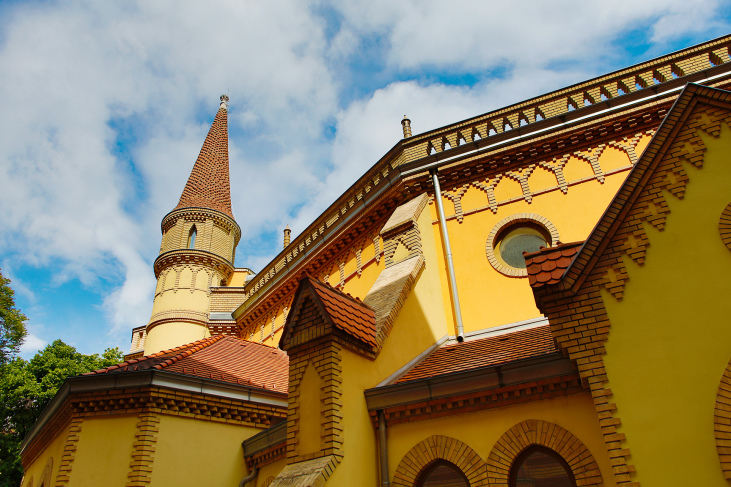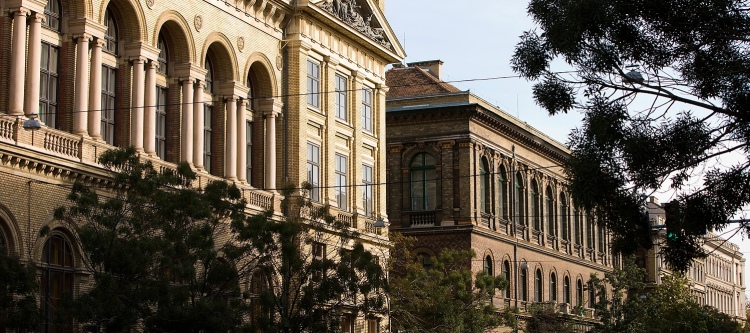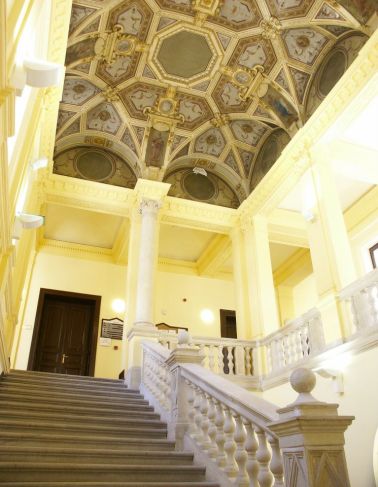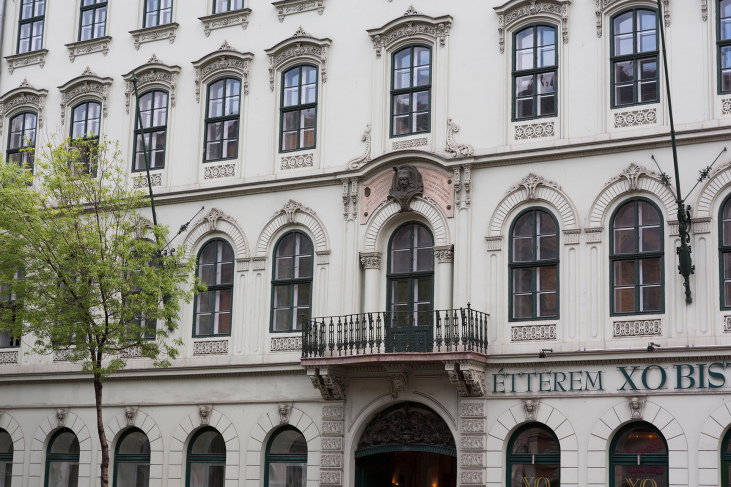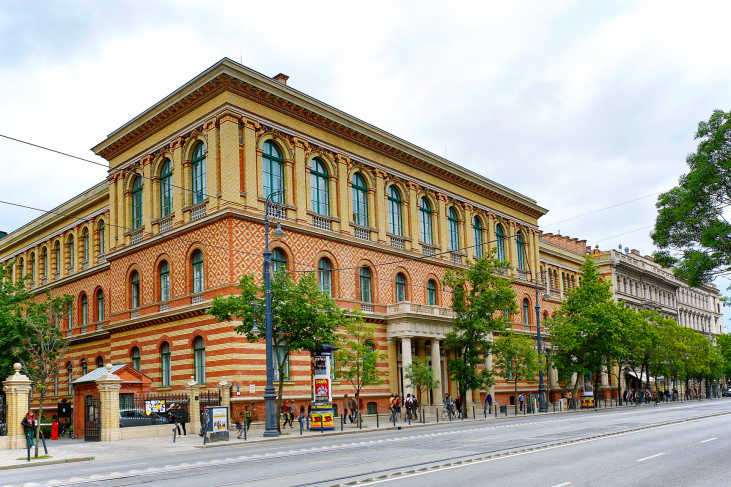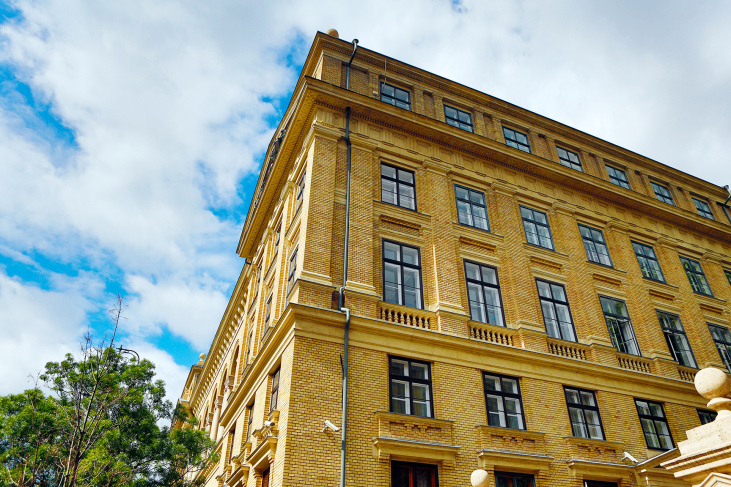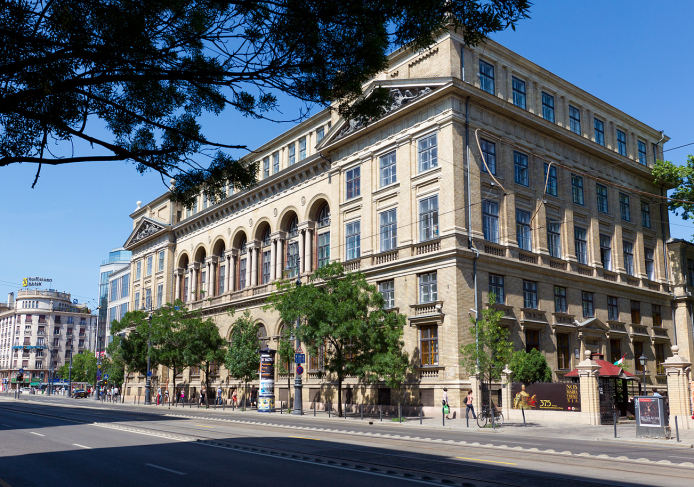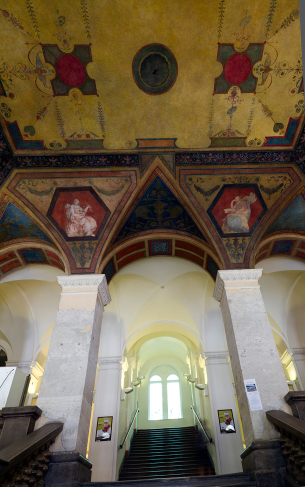Cultural Heritage Studies MA
Cultural Heritage Studies MA
Specialist of Cultural Heritage Studies
Degree program
Master
FNYF/1043-3/2021
Institute of Historical Studies
English
4 semesters (2 years)
120
5
12
Within the Institute of History, the Department for Interdisciplinary History has been providing education in the field of cultural heritage since 2012, initially as a specialization of the History MA program, and from 2016 in the form of an independent Hungarian master's degree program. Since 2018, the Department has been coordinating a bilingual (English and French) Erasmus Mundus Joint Master Degree program on cultural heritage (TEMA+ European Territories. Heritage and Development), in association with four partner universities (Charles University, Prague; École des Hautes Études en Sciences Sociales, Paris; University of Catania; Université Laval, Québec) and in cooperation with European Heritage Label (EHL) and various UNESCO organs. The English-language Cultural Heritage Studies MA program is based on the domestic and international experiences of the department. The program provides internships for students in several institutions involved in heritage protection and management.
This program is recommended to applicants who are willing to gain a solid and interdisciplinary scientific knowledge in critical cultural heritage studies, as well as practical experience and skills offered by internships with local, regional and national cultural organisations and heritage institutions. It is also suggested for those who wish to integrate to an international scientific network and to a highly professional scientific community.
This program enables students to prepare for academic careers as researchers and/or for working opportunities in various branches in the field of cultural heritage, by combining theoretical and practical knowledge.
One of the main features of the program is the interdisciplinary approach, covering several areas of research related to cultural and nationalism studies, historiography, sociology and urbanism, together with the offer of a variety of methodological approaches and a strong emphasis on practical knowledge. Our graduates will have a broad knowledge in many areas of cultural heritage, both in theoretical and practical dimensions. Besides offering up-to-date research results and a wide range of current theories, the department is characterised by a friendly, familiar atmosphere where students are provided by close, personalized supervision.
The department, since its foundation, has very close cooperation with prestigious European universities and it is embedded into a wide academic network. In the last years, the department has coordinated the Master Course TEMA European Territories (Civilisation, Nation, Region, City): Identity and Development and the TEMA+ European Territories: Heritage and Development programme, which makes European cultural heritage its new key element, after recognizing the importance of cultural heritage on global, national and regional scales, and, within the EU. Between 2007 and 2020, the department participated to the Horizon 2020 project entitled REACH (Re-designing access to cultural heritage for a wider participation in preservation, (re)use and management of European culture) and since 2020, to the Horizon 2020 project UNCHARTED Understanding, Capturing and Fostering the Societal Value of Culture.
Our graduates will be able to apply for Ph.D. studies either at Eötvös Loránd University or eventually in a co-tutelle training form, at our partner universities who belong to the international academic network of the department. Besides the academic career, the program may also encourage and enable students to find a job in heritage industry, in public or private cultural organizations.
- University professor,
- Heritage expert in a national research institute
- Official at a UNESCO organisation
- Employee at an NGO working in cultural tourism and monument protection
2,500 EUR
2,500 EUR
The application fee is discounted for Early Bird applicants: EUR 100 (non-refundable) between 01/11/2024 - 30/11/2024 and between 01/02/2025 - 31/03/2025; The regular application fee is: EUR 150 (non-refundable) between 01/04/2025-31/05/2025
The application fee is discounted for Early Bird applicants: EUR 100 (non-refundable) between 01/11/2024 - 30/11/2024 and between 01/02/2025 - 31/03/2025; The regular application fee is: EUR 150 (non-refundable) between 01/04/2025-31/05/2025
100 EUR (Entrance exam fee)
100 EUR (Entrance exam fee)
2,500 EUR
The application fee is discounted for Early Bird applicants: EUR 100 (non-refundable) between 01/11/2024 - 30/11/2024 and between 01/02/2025 - 31/03/2025; The regular application fee is: EUR 150 (non-refundable) between 01/04/2025-31/05/2025
100 EUR (Entrance exam fee)
Yes
01, Sep, 2025
31, May, 2025
No
Entry requirements
Applicants must hold a university bachelor’s (BA) degree (or an equivalent college degree) in the fields listed below.
Previously earned credits are acknowledged for entry into the program in full if the applicant holds a BA degree in social science bachelor’s degree programs, or humanities bachelor’s degree programs as follows: liberal arts, history, archaeology, ethnography, and Hungarian.
Applicants with a BA degree in architecture and architectural design must have at least 30 credits to enter the program, from areas related to cultural history (cultural anthropology, ethnography, archaeology, philology, aesthetics, art history, history, and cultural studies).
Applicants holding diplomas from any other bachelor and master’s degree programs, as well as programs corresponding to Act LXXX of 1993 on Higher Education accepted by the Credit Transfer Committee of the Faculty of Humanities of ELTE, on the basis of a comparison of the knowledge on which the credit is based, must have at least 40 credits from areas related to cultural history (cultural anthropology, ethnography, archaeology, philology, aesthetics, art history, history, and cultural studies); they can be admitted with a minimum of 30 credits to the program, while the remaining credits should be earned during their first two semesters at the Cultural Heritage Studies MA program in conformity with the Studies and Exams Code of the Faculty of Humanities of ELTE.
The educational and outcome requirements are defined by the Ministry of Human Capacities, Regulation No. 18/2016. (VIII. 5.). Details of the application and admission process are defined by the Organisational and Operational Regulations of ELTE.
Language requirements:
Non-native speakers of English must demonstrate a very good level of English-language skills.
Following results or more are preferred:
TOEFL PBT (Paper-based test): 516-554
TOEFL IBT (Internet-based test): 66-82
TOEFL IBT Home Edition: 66-82
IELTS (International English Language Testing System): 6.0
CEFR (Common European Framework of Reference): B2
Duolingo: 85
|
Document |
Comment |
|
Secondary school certificate (graduation certificate) |
Notarized copy only on request. |
|
Bachelor-level degree |
An official copy of your completed Bachelor degree |
|
Transcript of records |
An official list of completed courses. |
|
CV |
Curriculum Vitae including applicant’s previous achievements (scholarships, publications, conference presentations, cultural projects, business experience, voluntary work, etc.) |
|
Motivation letter |
A maximum of 500 words indicating why the applicant wishes to start the program, and what his/her special field of interest is. |
|
Research work plan |
A preliminary research proposal for a proposed thesis project with a study and research plan (detailed outline of your field of interest), a preliminary bibliography (indicating what the applicant has read already). |
|
Copy of the main pages of the passport |
Scanned, in colour all personal details and expiry date must be shown. Passport must be valid. |
|
Copy of application fee transfer |
|
|
Copy of the Entrance exam fee transfer |
|
|
Language certificate |
Official test result or certificate must be provided; |
Optional documents for admissions
- Letter of Reference
Also called “Letter of recommendation”: From a former instructor and/or employer
The application starts in the online application system. Students need to register in the system, fill in the online application form, upload the required documents and follow the instructions during the application process.
The application procedure includes 3 periods in order to give the applicants the freedom to submit their application when it’s most suitable for them. The applicants of each period have the same chance to get admittance for the programme. However, please note, that the Faculty of Humanities ELTE reserves the right to cancel the entrance periods in case the number of the admitted applicants reaches the limit during the previous entrance periods.
Period 1 (with Early Bird discount): 01/11-30/11/2024 23:59 (CET)
Period 2 (with Early Bird discount): 01/02-31/03/2025 23:59 (CET)
Period 3: 01/04-31/05/2025 23:59 (CET)
Applications will only be processed if the application fee (100 EUR or 150 EUR depending on application period; non-refundable) has been transferred to the Faculty’s bank account.
For further information and details about transferring the application fee please visit our Faculty’s website: btk.elte.hu/prospective-students-financial-issues
BANK ACCOUNT DETAILS OF OUR UNIVERSITY
IBAN Bank Account: HU 03 1003 2000 0142 6201 0000 0000
BIC/SWIFT code: HUSTHUHB
Name of the University: EÖTVÖS LORÁND UNIVERSITY, ELTE BTK
Address: 1088 Budapest, Múzeum krt. 4/a, Hungary
Name of the Bank: Hungarian State Treasury Ltd. (Magyar Államkincstár)
Address of the Bank: 1139 Budapest, Váci út 71.
PLEASE DO NOT MISS TO ADD IN THE MESSAGE SECTION:
Name of applicant
AY 2025/26/1
The University’s sub-account number: AC9202/04
The programme is not available for Hungarian citizens.
Results and the official decision will be announced within a month after the entrance exam date, in the application system.
For more information about the application procedures, please visit the Faculty's website.
Entrance examination and selection process:
When the university receives the full application package and it is checked by the Department of International Affairs an entrance exam date option will be sent no later than the application deadline for the relevant period. Please, check your messages in the application system, and the e-mail address that is linked to the account regularly. The applications are examined by the Admission Board no later than after each application period and applicants are notified of the outcome of the selection in the online application system after the decision is official. Admission letters are sent out in the online application system within a few days.
Procedure of the entrance examination
The entrance exam contains a discussion about the motivation of the applicant. Successful applicants must have a good command of English to pass the entrance exam. The format of the entrance exam is an online interview. Ranking is based on the overall evaluation of academic excellence (based on the submitted documents) and the results of the entrance exam.
Further details of selection and evaluation:
The ranking is based on a total evaluation of the academic excellence (based on the submitted documents) and the results of the entrance exam.
Dr. Gábor Czoch associate professor
Institute for Institute of Historical Studies, Atelier Department for Interdisciplinary History
Admission
Department of International Affairs
International admission coordinator
E-Mail: admission@btk.elte.hu
Cultural Heritage Studies
Cultural Heritage Studies
0
/
0















0
/
0

